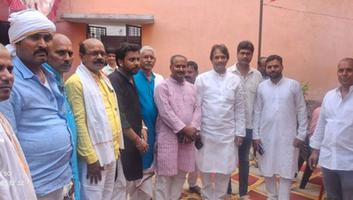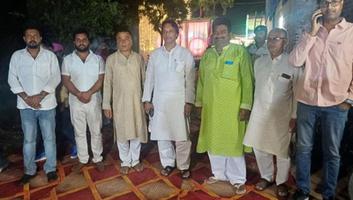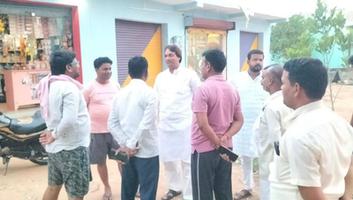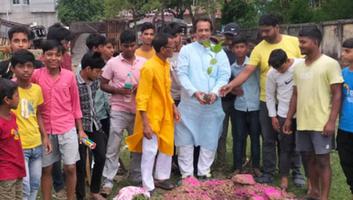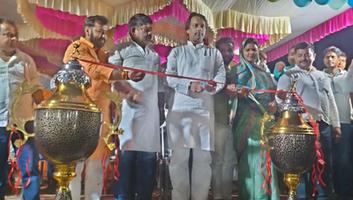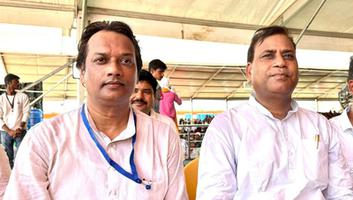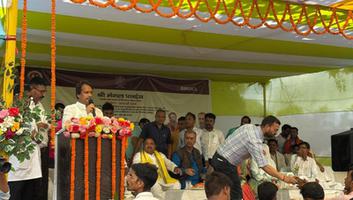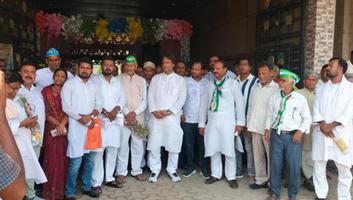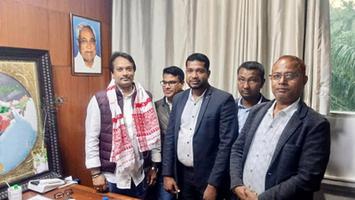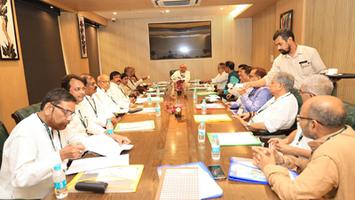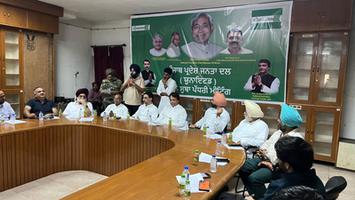Community-Led Water Conservation: Empowering Local Action
- By
- Gitanjali Maggo
- June-03-2025
While technological solutions like AI and advanced monitoring systems play a crucial role in addressing water challenges, the human element remains at the heart of sustainable water management. Community-led water conservation initiatives empower local populations to take ownership of their water resources, combining traditional knowledge with modern approaches to create resilient water systems. At Pani Ki Kahani, we believe that the most successful water management strategies are those that meaningfully engage communities as active participants rather than passive beneficiaries.
Community-led approaches recognize that local residents often possess deep knowledge about their water resources, traditional management practices, and the specific challenges they face. By building on this foundation and integrating appropriate technologies, communities can develop contextually relevant solutions that are more likely to be sustained over time.
The Power of Community Engagement
Community-led water conservation offers numerous advantages:
- Local Knowledge Integration: Communities often possess generations of knowledge about local water sources, seasonal patterns, and effective management practices that can inform more effective solutions.
- Increased Ownership: When communities are involved in planning and implementing water conservation initiatives, they develop a sense of ownership that leads to better maintenance and sustainability of projects.
- Contextual Relevance: Solutions developed with community input are more likely to address the specific needs, priorities, and constraints of local contexts.
- Social Cohesion: Working together on water conservation can strengthen community bonds and build social capital that supports collective action on other challenges.
- Cost-Effectiveness: Community participation can reduce implementation costs through volunteer labor, local material sourcing, and more efficient resource allocation based on local knowledge.
AI as an Enabler for Community Action
Rather than viewing technology and community engagement as separate approaches, we see AI as a powerful enabler that can enhance community-led water conservation in several ways:
1. Democratizing Data and Knowledge
AI can process complex water data and present it in accessible formats that empower communities to make informed decisions:
- User-Friendly Interfaces: Mobile apps and simple dashboards that visualize water levels, quality, and usage patterns in ways that non-technical community members can understand.
- Local Language Support: AI-powered translation and voice interfaces that make water information accessible in local languages and for those with limited literacy.
- Early Warning Systems: AI-generated alerts about potential water issues (e.g., contamination, depletion) that enable timely community response.
2. Citizen Science and Participatory Monitoring
AI can enhance the value of community-collected data:
- Low-Cost Sensing: Simple, affordable sensors combined with AI analysis allow communities to monitor their water resources without expensive equipment.
- Mobile Data Collection: Smartphone apps with AI capabilities that enable community members to report water issues, with algorithms helping to verify and analyze the crowdsourced data.
- Pattern Recognition: AI algorithms that identify meaningful patterns in community-collected data that might not be apparent through manual analysis.
3. Decision Support for Community Water Management
AI can help communities make more effective decisions about their water resources:
- Scenario Planning: AI models that simulate different water management approaches, helping communities understand potential outcomes of various decisions.
- Resource Optimization: Algorithms that suggest optimal water allocation across different uses (drinking, irrigation, livestock) based on availability and community priorities.
- Maintenance Scheduling: AI-generated recommendations for when and how to maintain water infrastructure based on usage patterns and environmental conditions.
Successful Models of Community-Led Water Conservation
Across India, numerous examples demonstrate the power of community engagement in water conservation:
The Alwar Model: Community-Driven Watershed Management
In Rajasthan's Alwar district, communities have revived traditional water harvesting structures called johads (check dams) through collective action. Led by organizations like Tarun Bharat Sangh, villages have constructed thousands of johads, recharging groundwater and reviving rivers that had been dry for decades. The success stems from community ownership, with villages forming water parliaments (pani panchayats) to manage these structures.
Our contribution has been integrating simple monitoring technology with these traditional structures, allowing communities to track water levels and quality, and share this data across villages through an AI-powered platform that generates insights and recommendations.
Women Water Champions: Gender-Inclusive Approaches
In several states, women-led water committees have proven highly effective in managing community water resources. Women, who often bear the primary responsibility for household water collection, bring valuable perspectives to water management. Programs that specifically empower women as water managers have shown impressive results in terms of equitable distribution, reduced wastage, and improved maintenance of water systems.
We've developed specialized mobile tools with intuitive interfaces that help these women's groups track water usage, quality, and system performance, with AI assistance providing recommendations in local languages and accounting for varying literacy levels.
Urban Water Guardians: Community Monitoring in Cities
Even in urban settings, community-led approaches are making a difference. Resident welfare associations and neighborhood groups in cities like Bangalore and Chennai have implemented rainwater harvesting, water recycling, and leak detection initiatives. These efforts have reduced dependence on municipal supply and tankers while building community resilience during water shortages.
Our AI-powered urban water platform connects these community groups, allowing them to share best practices, compare performance metrics, and receive tailored recommendations for their specific urban water challenges.
Principles for Effective Community-Led Water Conservation
Based on our experience working with communities across India, we've identified key principles for successful community-led water conservation:
- Start with Listening: Begin by understanding community perspectives, priorities, and existing knowledge about water resources.
- Build on Traditional Practices: Respect and incorporate traditional water management approaches, enhancing rather than replacing them with new technologies.
- Ensure Inclusive Participation: Create mechanisms for all community members—including women, youth, elderly, and marginalized groups—to meaningfully participate.
- Develop Local Capacity: Invest in training community members to monitor, maintain, and manage water systems independently.
- Create Sustainable Governance: Establish clear community-based governance structures for ongoing water resource management.
- Provide Appropriate Technology: Introduce technologies that match community needs and capacities, with proper training and support.
- Connect to Broader Systems: Link community efforts to larger watershed management and policy frameworks for greater impact.
"When we trust communities with their water future and equip them with the right tools and knowledge, they become the most powerful agents of sustainable change."
At Pani Ki Kahani, we're committed to supporting community-led water conservation through our participatory approach that combines traditional wisdom with appropriate technology. By empowering communities with accessible AI tools, data, and decision support systems, we're helping to build a future where water management is both technologically advanced and deeply rooted in local ownership and action.


